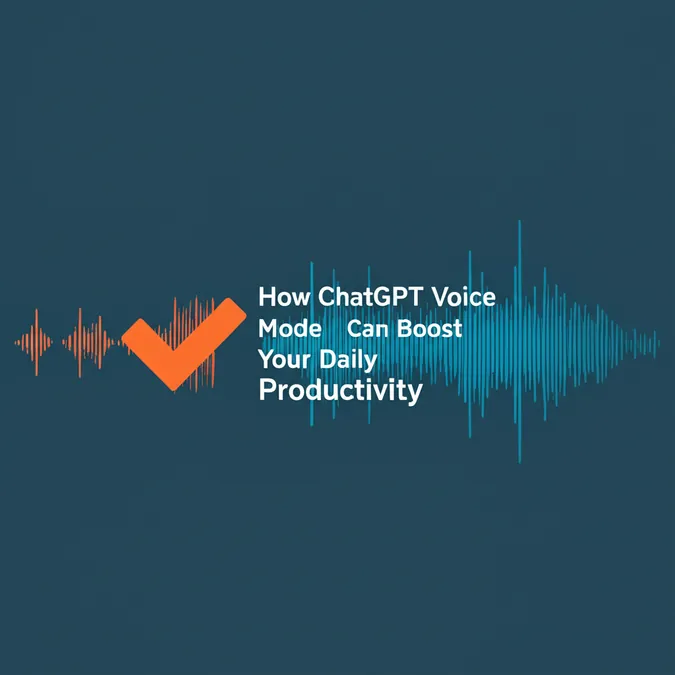Developer Offer
Try ImaginePro API with 50 Free Credits
Build and ship AI-powered visuals with Midjourney, Flux, and more — free credits refresh every month.
Smartphone AI Is The New Android Bloatware
If you've purchased an Android phone recently, you've likely encountered a barrage of AI features. From Samsung's Galaxy S25 offering Gemini, Circle to Search, Bixby, and Galaxy AI, to other brands pushing their own intelligent tools, the landscape is crowded. It's reminiscent of the early days of Android when manufacturers loaded devices with proprietary apps and user interfaces to stand out. This raises a critical question: has AI simply become the new Android bloatware?

The Quest for Differentiation in a Crowded Market
It's understandable why Android phone-makers are clinging to AI as a way to distinguish themselves. Most flagship phones are built from the same blueprint: a top-tier Snapdragon processor, the latest Android OS, a great camera, and a day-long battery. The differences are often minimal. Generative AI appeared to be a golden opportunity to offer unique experiences and give consumers a new reason to choose their device over a competitor's, especially as Apple slowly rolls out its own AI.
However, this strategy isn't panning out as expected. CNET research consistently shows that consumers aren't upgrading for AI. The top priorities remain the same as they've been for years: price, battery life, storage, and camera quality. Furthermore, AI hasn't proven to be the great differentiator manufacturers hoped for, largely because Google's own Gemini is already integrated at the core of the operating system.
Samsung's Head Start and Google's Shadow
Samsung has arguably made the most significant push with its own AI brand. By launching Galaxy AI in January 2024, it gained a strategic head start. The company reports high engagement, with 70% of Galaxy S25 owners using Galaxy AI features and over half using Circle to Search.

But here's the catch: Circle to Search is a Google feature, initially given to Samsung as a temporary exclusive. This is a common tactic for Google to sweeten its relationships with partners. Ultimately, these headline-grabbing AI tools are Gemini features that eventually become available on all Android devices. As analyst Ben Wood of CCS Insight notes, for Google, "nothing is more important than Gemini," and with 3 billion Android phones in the market, its reach far surpasses any single manufacturer.
The "Bonus AI" Strategy
Manufacturers like Samsung argue that their AI suites complement, rather than compete with, Gemini. They often look for opportunities to add their own unique twist, particularly with camera features. OnePlus, for instance, recently rolled out its own AI tools, including an AI content hub called "Plus Mind."

OnePlus acknowledges it would be a waste of resources to replicate what Google has already perfected. Instead, they aim to integrate Google's features quickly while building their own value proposition. Other companies, like Motorola, are exploring more novel ideas like Large Action Models (LAMs), which focus on performing tasks rather than just providing information.
All Roads Lead to Gemini
Google's perspective is clear. Sameer Samat, President of Android, told Tech Radar that while it's "great" that manufacturers innovate, Google's priority is ensuring its core AI tools are "very clearly accessible, very clearly identifiable across all the different devices." This statement supports the theory that Google aims to be the final word in the smartphone AI experience. With its immense budget and talent pool, Google's dominance seems inevitable, leaving other brands to compete on other fronts.
True Differentiation: The Nothing Story
One company that seems to understand this reality is the UK-based Nothing. While most phone launches feature a Google representative praising Gemini, Nothing has focused on a different path. It has built a loyal following primarily through its unique design philosophy.

This isn't to say Nothing ignores AI. It has taken a pragmatic approach. CEO Carl Pei explained that Nothing doesn't want to compete in building AI models. Instead, its platform is "model agnostic." This means it can switch to the best-performing model on the market at any given time. This flexible strategy may be the smartest bet in a rapidly evolving tech landscape.
The Uphill Battle Ahead
The real fight in mobile AI is not between Android manufacturers, but between Google and Apple. As Google continues to enhance Gemini and embed it across the entire Android ecosystem, proprietary AI features from other brands risk becoming irrelevant. To truly stand out, phone-makers will need to offer more than just another AI tool. They must lean into strengths like brand, industrial design, and user experience, or risk their AI efforts being dismissed as the new bloatware.
Compare Plans & Pricing
Find the plan that matches your workload and unlock full access to ImaginePro.
| Plan | Price | Highlights |
|---|---|---|
| Standard | $8 / month |
|
| Premium | $20 / month |
|
Need custom terms? Talk to us to tailor credits, rate limits, or deployment options.
View All Pricing Details

